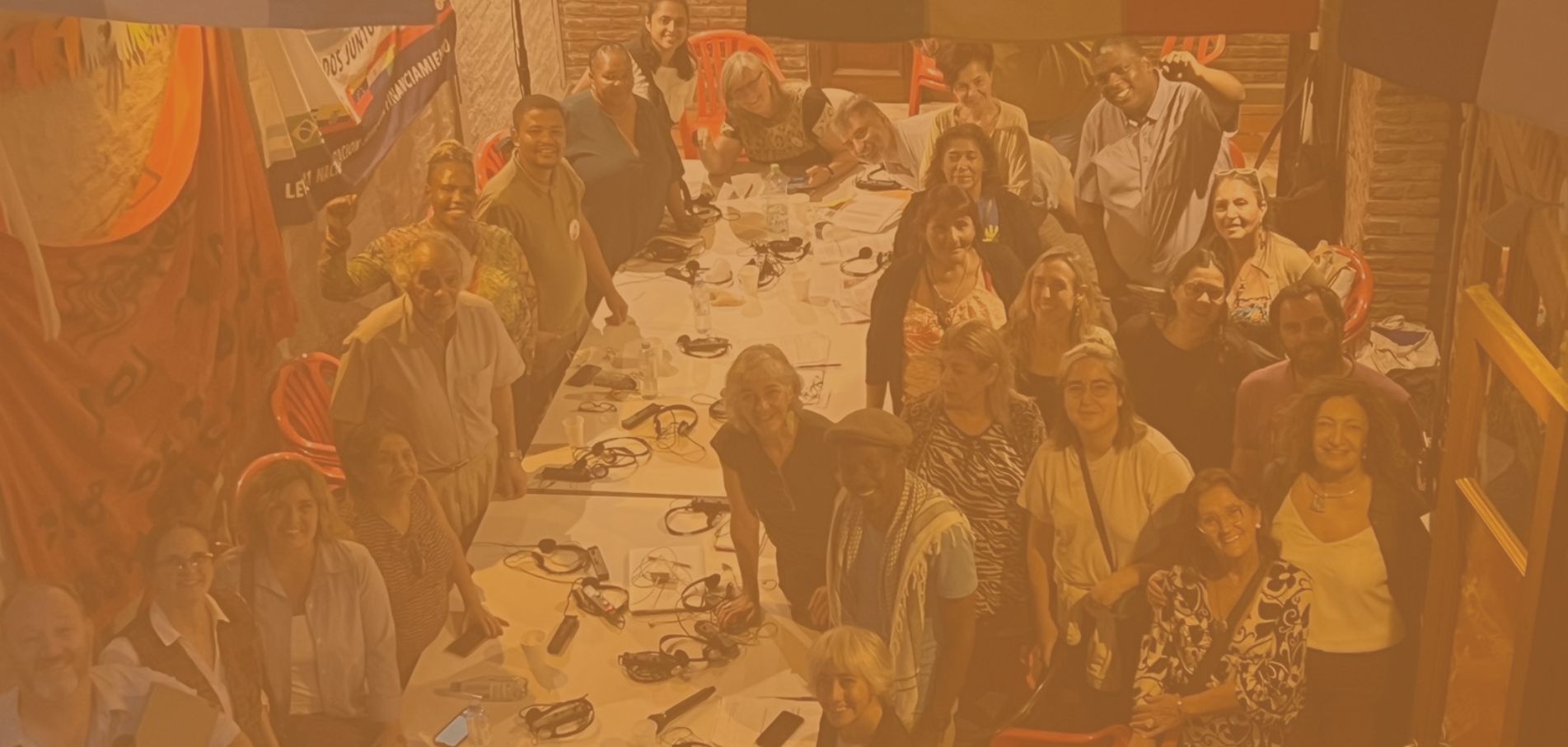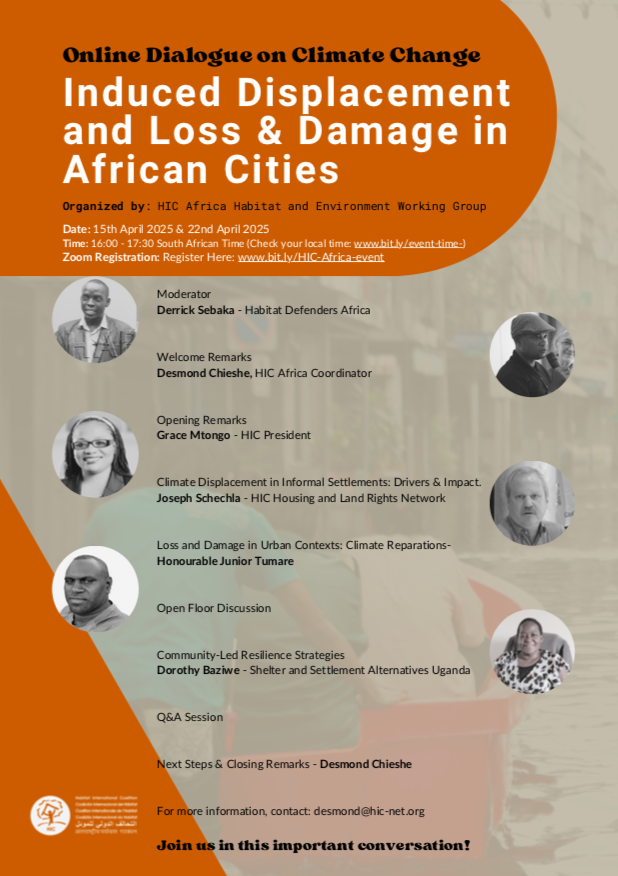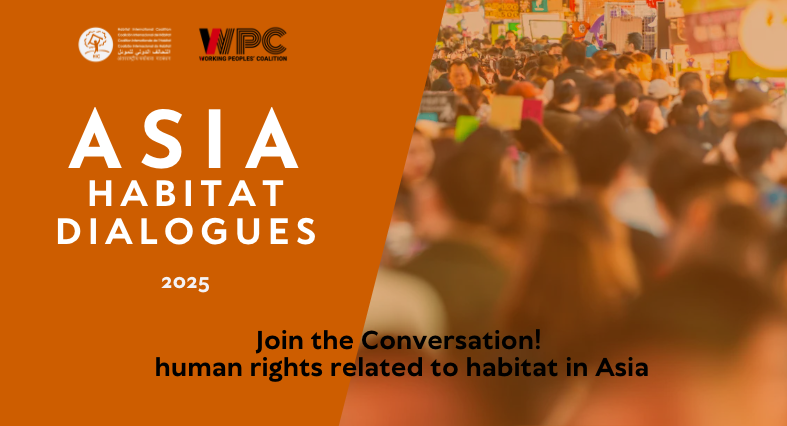The second session of the United Nations Habitat Assembly (UNHA2) was held from 5 to 9 June 2023 in Nairobi. Kenya. The theme of the session was “A sustainable urban future through inclusive and effective multilateralism: achieving the Sustainable Development Goals in times of global crises.” Thematic debates and discussions during the Assembly focussed on universal access to affordable housing, urban climate action, urban crises recovery, localization of the Sustainable Development Goals (SDGs) and prosperity and local finance,.
The UNHA is one of three governing bodies of the United Nations Human Settlements Programme (UN-Habitat and convenes every four years. It is the highest global decision-making body on sustainable urbanization and human settlements. At the UNHA, the 193 participating UN Member States cast votes, while participants included non-Member States, other UN bodies and specialized agencies, as well as intergovernmental organizations, civil society (including a delegation from HIC), private sector, academia and research institutions, women, youth and children, and grassroots organizations.
HIC participated actively during the assembly, represented by a delegation composed by the HIC president, as well as members from its reference centers. Ahead of the assembly, the HIC board and staff gathered in Nairobi to hold a strategic planning retreat, as well as exchanges with local members and partner organizations.
HIC’s participation and objectives for the UNHA2
For HIC, participation at the UNHA was a strategic opportunity to raise priority issues jointly with allies in relation to the New Urban Agenda (NUA) and SDG 11, thereby articulating a clear position on specific civil society priorities in the process leading to the UN Pact for the Future. It was also the opportunity to follow-up and deepen efforts related to improving participation, coordination and transparency related to UN-Habitat.
In this sense HIC’s objectives at the UNHA included:
- Articulating HIC priorities in the review of the New Urban Agenda (NUA) and Agenda 2030, by focussing on yet to be realised commitments in the NUA, like human rights commitments, espoused by the global movement on the right to the city, social production of habitat and women’s rights.
- Coordinating with other stakeholders (civil society, private sector and local governments) to organize the structure and governance of UN Habitat’s new Stakeholder Engagement Mechanism
- Overseeing debates related to UN Habitat Strategic Plan 2024-2027 – understanding and interrogating implementation priorities and its connection with the resolutions approved in the Assembly;
- Connecting with Members and strengthening HIC’s relationship with key allies, including joint strategising ahead of the HLPF, SDG Summit and COP28
Building HIC’s internal strategy for 2024 – 2026 at a Board strategic planning workshop, held a few days before the UNHA took place.
A complete realization of the NUA commitments for structural change
Beyond attending the sessions held during the assembly, as well as side-events and parallel meetings with members and partners, the HIC delegation concentrated particular in the activities described below. First of all, ahead of the assembly, along with partner organizations, HIC released a collective statement entitled Walk the talk: a complete realization of the NUA commitments for structural change. A one-page summary of the statement is accessible here. The main tenets of the above statement were also presented by HIC President Adriana Allen as part of the HIC statement in UNHA plenary session and at the World Assembly of Local and Regional Governments (LRGs) on Thursday 8 June.
HIC, together with GPR2C, UCLG and Huairou Commission held a joint side event on Thursday 8 June titled “Quito+6: A collective dialogue to recover and fulfill the New Urban Agenda’s Commitments”. The event counted with contributions from representatives of national and local governments, as well as from UN-Habitat and the organizing partners, highlighting different strategies for advancing on the implementation of NUA commitments. Main takeaways from the conversation include reinforcing the understanding of NUA’s importance and relevance in the current context and acknowledging the complex and intersectional nature of indicators and measuring approaches, as well as the role that the different stakeholder involved in its negotiation hold not only as implementers, but also as political drivers for its recognition.
Another key component of HIC’s engagement during UNHA2 pertained to debates around participatory modalities in regard to UN-Habitat. This centered significantly on the discussion of a stakeholder engagement mechanism for the agency. Throughout the Global Stakeholder Forum (GSF) held prior to the assembly, as well as during a dedicated side-event, it was made clear how advancing on the agreement of the model for the mechanism and its implementation is urgent and should be done on the basis of the proposals that have been previously discussed until now, as the result of the proceedings of a specific working group created for the matter and of which HIC-HLRN has been an active participant of. Looking forwards, HIC commits to playing an active role to achieve this aims and calls aligned constituencies to join in.
Finally, prior to the GSF and the UNHA the HIC Board met for strategic planning in Nairobi and met with HIC Nairobi members on Thursday 1 June and learnt about the high housing tax in Kenya. In solidarity with Kenya members, the group developed a campaign and carried out a peaceful demonstration on the steps of UN Habitat on Monday 5 June to raise awareness for the campaign.
Main outcomes of the UNHA2
The UNHA took place in the context of a current global process towards a reinvigorated multilateral system, to be adopted at the UN Summit of the Future in the form of the UN Pact for the Future (September 2024). The outcomes of the UNHA will inform the milestone gatherings leading to the Summit of the Future, including the UN High Level Political Forum on Sustainable Development (July 2023) and its review of SDG 11 on Sustainable Cities and Communities and the UN SDG Summit (September 2023).
The UNHA programme was guided by an agenda discussed by Member states in daily plenary sessions with daily side-events and an exhibition space. Beyond the decision taken to accelerate the agreement on a model for the stakeholder engagement mechanism (to be approved by the next UNHA in 2025), the outcomes of the UNHA2 include a Ministerial Declaration and the adoption of 13 draft resolutions.
The Draft Ministerial Declaration reaffirms the commitment to the New Urban Agenda (NUA) and its implementation plan and pledge that no one will be left behind, agreeing that inclusive and effective action requires a multi-level, multi-stakeholder and multi-sectoral approach including data systems and knowledge for evidence-based policies and results monitoring, innovation, advocacy and communication, partnerships, capacity building and digital transformation. The declaration also sets the extension of the UN-Habitat strategic plan for the period 2020−2023 to also cover the period 2024−2025, and to convening, in 2025, a resumed regular second session of the United Nations Habitat Assembly to adopt the UN-Habitat strategic plan for the period 2026−2029.”
In total 10 draft resolutions were presented by different Member States. An overview can be found here. Two resolutions are particularly relevant to HIC. First, the draft resolution on accelerating the transformation of informal settlements and slums by 2030, presented by South Africa and supported by Botswana, Brazil and Peru, which seeks to give structural support to the implementation of the Global Action Plan: Accelerating for Transforming Informal Settlements and Slums by 2030 which Habitat for Humanity, SDI, Huairou Commission and Cities Alliance contributed to, among others. A corresponding technical note, including budget, is accessible here. Second, the draft resolution on adequate housing for all, presented by Kenya and supported by Bahrain, Egypt, France, Jordan, Malaysia, Pakistan and the United States of America, which requests the creation of a dedicated group on housing composed by Member States to advise the UN Habitat Assembly. HIC commits to oversee the follow-up and implementation of these resolutions, which serve to inform the current and future priorities of UN-Habitat’s work plan.


